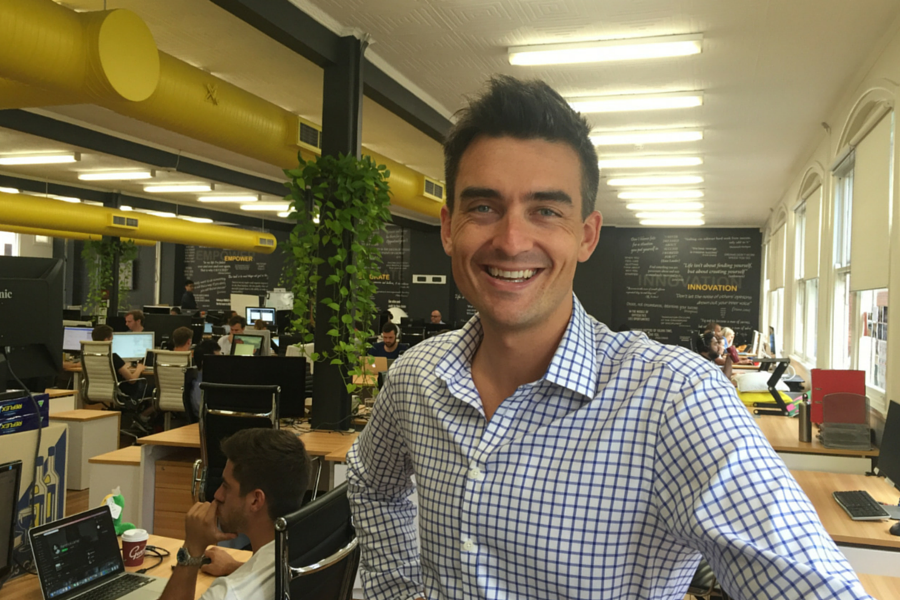The end of another year means another Crossroads report from StartupAUS, examining the state of play for startups across Australia and providing much food for thought for the year ahead.
This year’s edition is no different, with StartupAUS CEO Alex McCauley telling Startup Daily that while the narrative around ‘innovation’ in the political arena has been up and down, overall he is optimistic about where the sector stands.
“The organic growth in the sector is unmistakable,” he said.
“When I started in this job three and a half years ago, there really wasn’t as much around as there is now. There’s been a real spike in demand for coworking spaces, you’ve got people joining and starting startups, and we’ve got capital going from being one of the things driving Australians overseas to being one of the big strengths of the local ecosystem.
“Suddenly, the settings are there for ambitious Australian founders who want to create globally relevant technology businesses to do that from Australia.”
While the Turnbull Government’s innovation boom went bust a long time ago now, McCauley said he has been pleasantly surprised by the way state governments around the country have picked up the mantle.
Victoria has created LaunchVic, for example, NSW is gearing up to celebrate the Sydney Startup Hub’s first birthday, Queensland has seen the rollout of the Advance Queensland program, South Australia is building Lot Fourteen in Adelaide – the list goes on.
What’s more, the amount of venture capital in the sector is higher than ever, with AVCAL estimating that Australian venture firms held about $3.3 billion in ‘dry power’ in 2018.
Of course, there is much to be done to both ensure that more Australians are learning about and joining the startup ecosystem, and ensure that the conditions are primed to enable companies to grow as fast and as far as they can.
A key barrier are changes being made to the R&D tax incentive, with an overhaul of the scheme aimed at improving “the effectiveness, integrity, and additionality” of the program announced in this year’s Budget.
The AFR this week reported that companies such as Airtasker have been subject to audits of claims from several years ago and asked to pay back millions.
As such, Crossroads’ first recommendation is to amend the scheme and its language to more clearly support software claims to ensure there is no uncertainty or confusion around the program. Changes to the scheme were also a key recommendation of last year’s report.
“Any kind of uncertainty around programs like the R&D tax incentive is really potentially quite damaging to the sector at a pretty critical moment,” McCauley said.
According to McCauley, the R&D tax incentive, Employee Share Schemes, and the Export Market Development Grant (EMDG) are foundational policies and legislation that go a long way to encouraging startups to start and facilitating their growth.
“We’ve had some historical success with Internet 1.0 companies like Seek, REA, and Carsales that are now listed companies companies. Then there’s the middle ground, where Atlassian sort of did it on its own post the dot com boom and now is worth as much as Lendlease and Qantas put together, but then there’s this new wave of companies that I think really could tip the balance so there’s a genuine, modern technology sector in Australia that helps build a solid base of prosperity for a couple of generations of Australians,” McCauley said.
“Those companies have grown up with some really strong fundamental support, particularly from programs like the R&D tax incentive and the EMDG. There are those bits that need absolutely to be rock solid.”
Along with improving speed and certainty for startups under the export market development grant, Crossroads also recommends the introduction of copyright safe harbour protections for tech companies, targeted amendments to legislation affecting employee share schemes, and improving Australia’s entrepreneur visa to make it competitive.
Beyond these foundational policies – a number of which also featured in last year’s report – StartupAUS is also calling for bigger picture thinking from government in the face of concern about changing economic structures and disruption.
StartupAUS is recommending the development and funding of a national entrepreneurship academy and investment in an innovation ambassador tasked with attracting cutting-edge R&D projects from global tech firms.
“We have to have a focus on what we can do to be ambitious in this, because we’re not operating in a vacuum here. Every country in the world wants to grab a piece of this massive technology boom that’s coming, and there’s a very genuine global competition for talent capital and ideas,” McCauley said.
“Australia has a pretty good base because we’ve got a strong business environment, a great legal framework, a modern developed economy with a great talent pipeline in our education system. But if we want to be globally competitive we’ve got to think ambitiously about how we position ourselves.”
Image: Alex McCauley. Source: Supplied.




















Trending
Daily startup news and insights, delivered to your inbox.